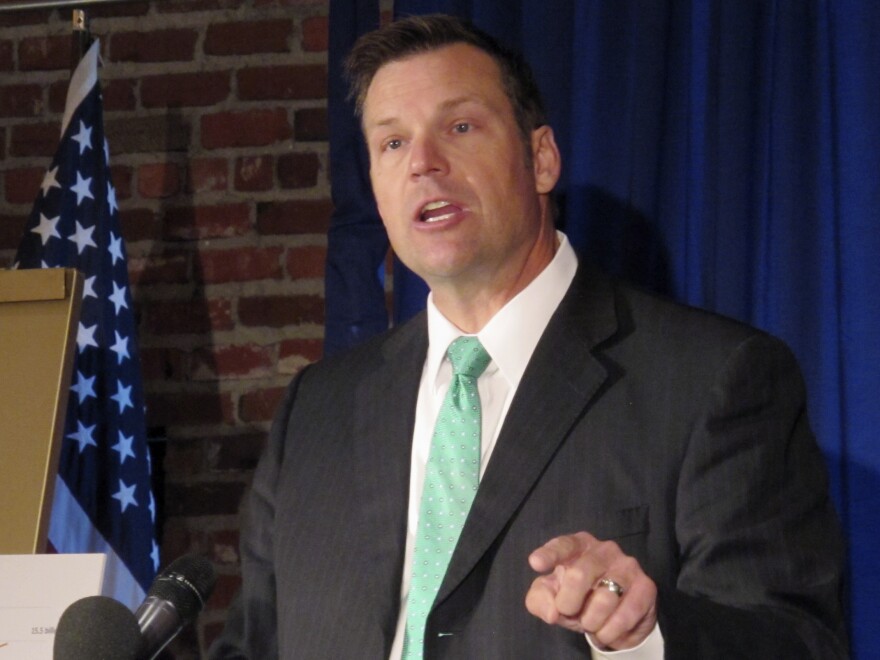A letter from Kris Kobach, the vice chairman of a White House commission looking into voter fraud and other irregularities, is drawing fire from some state election officials. The letter, sent Wednesday to all 50 states, requests that all publicly available voter roll data be sent to the White House by July 14, five days before the panel's first meeting.
The information requested includes the names, addresses, birthdates, political party (if recorded), last four digits of the voter's Social Security Number and which elections the voter has participated in since 2006, for every registered voter in the country.
Kobach, who is also Kansas' Republican secretary of state, did not say how the commission plans to use the data other than to help it "fully analyze vulnerabilities and issues related to voter registration and voting."
However, Kobach has long advocated comparing state voter rolls with other government databases to identify noncitizens or other illegitimate registrants. Voter advocacy groups say such comparisons are prone to error and worry that the effort will result in legitimate voters being purged from the rolls.
The bipartisan commission — chaired by Vice President Pence — was established by President Trump after he made his widely dismissed allegations that as many as 5 million people voted illegally last November. Its stated purpose is to recommend ways to improve the public's confidence in the integrity of elections.
But in response to Kobach's letter, California Secretary of State Alex Padilla said Thursday that he would not provide sensitive voter information to the commission.
"California's participation would only serve to legitimize the false and already debunked claims of massive voter fraud made by the President, the Vice President, and Mr. Kobach," Padilla, a Democrat, said in a statement.
Connecticut Secretary of State Denise Merrill also released a statement, saying that she would share publicly available data with the commission but complaining about a "lack of openness" about what the panel is looking for. Merrill cited past legal challenges to Kobach's efforts to clean up voter rolls in Kansas, which have led to some eligible voters being removed from registration lists.
"Given Secretary Kobach's history we find it very difficult to have confidence in the work of this commission," said Merrill, a Democrat and outgoing president of the National Association of Secretaries of State.

A spokeswoman for the association said the secretaries will almost certainly discuss Kobach's controversial request at their summer conference next week in Indianapolis.
The commission, which has yet to meet, has been viewed with suspicion from the start by civil rights groups, which think it will be used to justify measures — such as strict ID requirements — that will make it more difficult to vote.
Vanita Gupta, who headed the Civil Rights Division at the Justice Department during the Obama administration, said in a tweet that the letter confirms that "Pence and Kobach are laying the groundwork for voter suppression, plain & simple."
However, Kobach's letter also seeks recommendations from state officials on other issues, including how to prevent voter intimidation and disenfranchisement. It also asks how the commission can help with information technology security and vulnerabilities, a growing concern after reports of widespread Russian efforts to hack into U.S. election systems last year.
New Hampshire Secretary of State Bill Gardner, one of four Democrats on the commission, told WMUR reporter John DiStaso on Wednesday that he was impressed that Pence made it clear in a phone call with panel members earlier in the day that they would work on a bipartisan basis "with no preconceived notion and we should search for the facts."
After that call, the White House released a statement saying that Pence told commissioners: "The integrity of the vote is a foundation of our democracy; this bipartisan commission will review ways to strengthen that integrity in order to protect and preserve the principle of one person, one vote."
Copyright 2021 NPR. To see more, visit https://www.npr.org.





